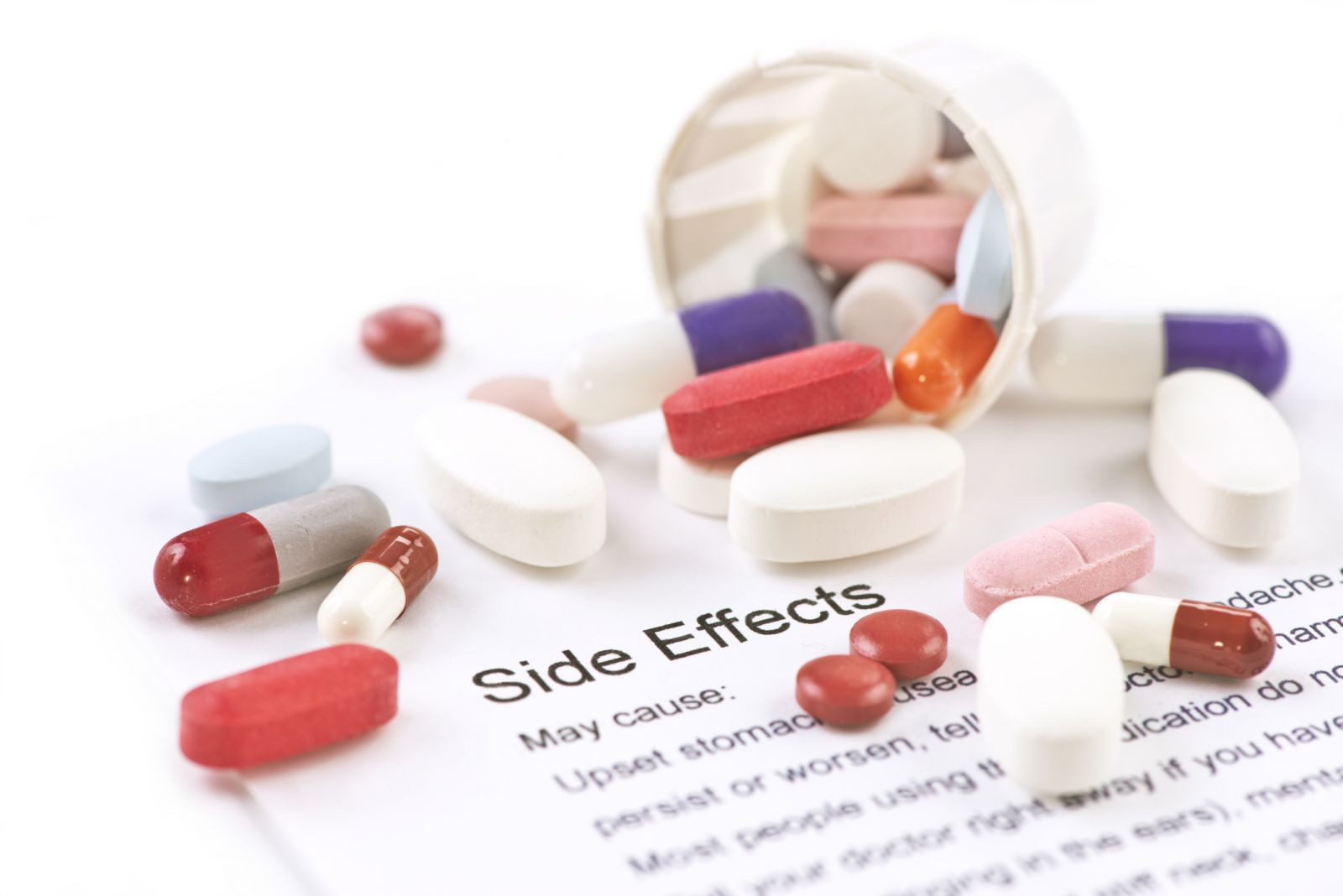
What are somatic workouts?

How to curb your stress eating

How to spot Parkinson’s disease symptoms

8 simple ways to reduce ultra-processed foods in your diet

Heart failure symptoms in women: How they’re different

GERD diet: Foods to avoid to reduce acid reflux

Strong is the new skinny

Everyday habits that sneakily weaken your bones

Don’t wait to get help for back pain

Correcting how you walk may ease osteoarthritis knee pain
Sexual side effects of SSRIs: Why it happens and what to do
Coping with this common side effect from antidepressants.

The popular medications known as selective serotonin reuptake inhibitors, or SSRIs, can help lift people out from under a dark cloud of depression. But there are some side effects from antidepressants, including those that can affect your sex life.
In addition to reducing interest in sex, SSRI medications can make it difficult to become aroused, sustain arousal, and reach orgasm. Some people taking SSRIs aren't able to have an orgasm at all. These symptoms tend to become more common with age.
SSRI medications include:
- citalopram (Celexa)
- escitalopram (Lexapro)
- fluoxetine (Prozac)
- fluvoxamine (Luvox)
- paroxetine (Paxil)
- sertraline (Zoloft)
- vortioxetine (Trintellix, formerly called Brintellix).
What to do if you experience sexual side effects from SSRIs
About 35% to 50% of people with untreated major depression experience some type of sexual dysfunction prior to treatment. So in some cases, sexual difficulties may stem not from the SSRI, but rather from the underlying depression.
If you experience any sexual problems while taking an SSRI medication, talk with your doctor or therapist. If medication is the problem, sexual side effects sometimes subside with time, so it's worth waiting a while to see if problems diminish. This is a particularly good strategy if the medication is easing your depression significantly.
But if side effects from antidepressants persist, your doctor or therapist may suggest one of the following strategies, as found in the Harvard Health Publishing Special Health Report Understanding Depression:
- Lower the dose. Sexual side effects may subside at a lower, although still therapeutic, dose.
- Schedule sex. Your medication may produce more pronounced side effects at particular times of the day, for example within a few hours of taking it. If so, you can try scheduling sexual activity for the time when side effects are least bothersome — or take the drug at a different time.
- Take a drug holiday. Depending on how long the drug usually remains in your body, you might stop taking it for a few days — for example, before a weekend, if that's when you hope to have sex. This isn't spontaneous, but it can work if you carefully follow your doctor's directions about how to stop and resume your medication. However, do not do this without first consulting your doctor or therapist. There is always a chance that this might cause a relapse, especially if it is one of the drugs that leaves your system relatively rapidly.
- Switch to a different drug. Certain antidepressants, such as bupropion (Wellbutrin) and mirtazapine (Remeron), are less likely to cause sexual problems. Bupropion, which affects both norepinephrine and dopamine, can sometimes improve sexual response.
- Add a drug. For some men, taking sildenafil (Viagra) or tadalafil (Cialis) can alleviate SSRI-induced erectile dysfunction. Both men and women may benefit from adding bupropion to their treatment. This medication has been found to counter SSRI-induced sexual dysfunction, boost sexual drive and arousal, and increase the intensity or duration of an orgasm. In some people, the anti-anxiety drug buspirone (BuSpar) may help increase libido and restore the ability to have an orgasm.
- Meet with a therapist. Even when physical issues or medication are at the root of sexual problems, psychological issues often become interwoven. For example, a few episodes of erectile dysfunction may cause a man to withdraw from sex and his partner to feel rejected. These issues can lead the couple to retreat further from intimacy. Working with a sex therapist or general therapist can help couples explore their sexual concerns, learn to better communicate, and expand their repertoire of sexual activities.
Disclaimer:
As a service to our readers, Harvard Health Publishing provides access to our library of archived content. Please note the date of last review or update on all articles.
No content on this site, regardless of date, should ever be used as a substitute for direct medical advice from your doctor or other qualified clinician.

What are somatic workouts?

How to curb your stress eating

How to spot Parkinson’s disease symptoms

8 simple ways to reduce ultra-processed foods in your diet

Heart failure symptoms in women: How they’re different

GERD diet: Foods to avoid to reduce acid reflux

Strong is the new skinny

Everyday habits that sneakily weaken your bones

Don’t wait to get help for back pain

Correcting how you walk may ease osteoarthritis knee pain
Free Healthbeat Signup
Get the latest in health news delivered to your inbox!
Sign Up




